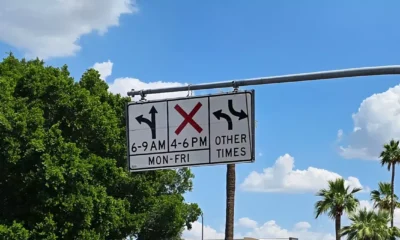arizona
Court Decision: Driving High on Marijuana Can Be Legal – Under Certain Conditions

In a landmark decision on October 2, the Arizona Court of Appeals ruled that merely having marijuana metabolites in one’s system does not warrant a suspension of driving privileges. The court’s unanimous decision challenged the Motor Vehicle Division’s stance, which argued that a blood test indicating the presence of marijuana was sufficient evidence to suggest that Aaron Kirsten drove under the influence.
Judge Andrew Jacobs articulated the court’s position, stating that the 2020 legalization of recreational marijuana in Arizona established a clear guideline: penalties are only justified if a driver is shown to be “impaired to even the slightest degree” by the substance. “This was not the case here,” Jacobs remarked, dismissing the state’s claim that Kirsten’s blood test alone constituted grounds for suspending his driving privileges.
The ruling is considered significant; it is the first such appellate court decision since the legalization of recreational marijuana expanded access beyond medical use. Notably, it strengthens the legal protections for marijuana users, not just against criminal charges, but against administrative actions taken by the Motor Vehicle Division without court involvement.
The case stemmed from a 2022 incident in Sedona, where police stopped Kirsten for speeding. Officers reported signs of impairment, including bloodshot eyes and slurred speech. Although a preliminary blood test indicated his blood-alcohol content was slightly over the legal limit, a subsequent blood draw revealed levels below that threshold. The presence of THC was confirmed by a forensic analysis, although Kirsten testified he had not consumed marijuana within 24 hours prior to the stop.
During an administrative hearing, Kirsten’s defense included testimony from a healthcare professional regarding the duration that marijuana metabolites can remain in the system. Despite this, his driving privileges were suspended for 90 days by the hearing officer, a decision that was initially upheld by a superior court judge.
Judge Jacobs emphasized that the ruling aligns with the intent of Arizona voters, as expressed in Proposition 207. The law specifically states that individuals cannot be penalized for past, legal use of marijuana unless they are proven impaired. He underlined that the law protects the rights conferred to individuals regarding their driving privileges.
In closing, the appellate judge asserted the voters’ mandate should not be undermined by legislative measures. Citing judicial precedents, Jacobs noted that the enactments originating from the electorate carry a weight that cannot be easily dismissed.


















